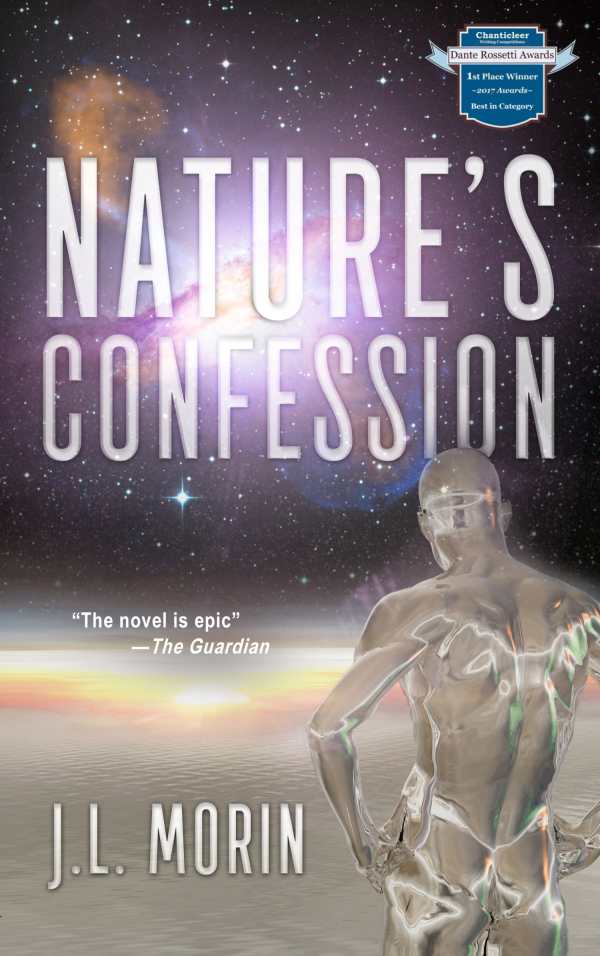Nature's Confession
Adventure, satire, dystopia, all in one well-written speculative-fiction package.
Nature’s Confession, a new speculative fiction novel by J. L. Morin, works to combine adventure, science fiction, and some political satire. It also has themes of father and son relationships and how older generations can influence younger ones for the betterment of humanity.
In a dystopian future, a keen young man gets a chance to create a living library and save humanity from pollution. Censors and government dictators run the future. There are more than eight billion people living off poisoned food supplies. Free speech and historical truths are covered up. But a nerdy and inquisitive young man—appropriately named Boy—might be everyone’s salvation.
The Client, an elderly Scot and former leader of the underground resistance against the world’s corporate megastructure, inducts Boy, distracting him from his domineering family, dictatorial teachers, and a mysterious auburn-haired girl he regularly dreams of. The reason: to get Boy to help him make a library of suppressed literature. He is going to be the youthful hope to provide freedom of expression to those that don’t have it and help break down the governing monolith that controls everyone.
What stands in Boy’s way? The evil Emperor of Earth and Ocean, a portly dictator who plots to have guns and capitalism reign for population control. Once he learns of Boy’s subversive activities, he demands that his underlings bring Boy to his throne side for adequate punishment.
Nature’s Confession doesn’t leave much to the imagination. While earnest in its central theme of rebellion against an oppressive society, its lack of narrative originality does not make an entirely convincing work. Passages like the Emperor’s demand, “I want everyone enslaved yesterday,” or this narrative declaration, “Corporations blocked their frantic attempts to save the planet,” lack subtlety and poetics. They make Nature’s Confession seem preachy.
Nature’s Confession does have easy-to-read prose and lean plot construction. Some of its other elements may appeal more to younger readers, especially the parallel story line of Boy’s sister Kenza’s struggles to find herself at “eHarvard” University, the enslaved Harvard university of the future. Her encounters with alien visitors and her mysterious classmate Valentine add an interesting subplot that offsets the main story of Boy and his exploits.
In the end, Nature’s Confession presents its own ideas in a sci-fi setting that, while written well technically, hits too many tired potholes to be totally convincing. Yet, it has good ideas and interesting secondary elements.
Reviewed by
James Burt
Disclosure: This article is not an endorsement, but a review. The publisher of this book provided free copies of the book and paid a small fee to have their book reviewed by a professional reviewer. Foreword Reviews and Clarion Reviews make no guarantee that the publisher will receive a positive review. Foreword Magazine, Inc. is disclosing this in accordance with the Federal Trade Commission’s 16 CFR, Part 255.

